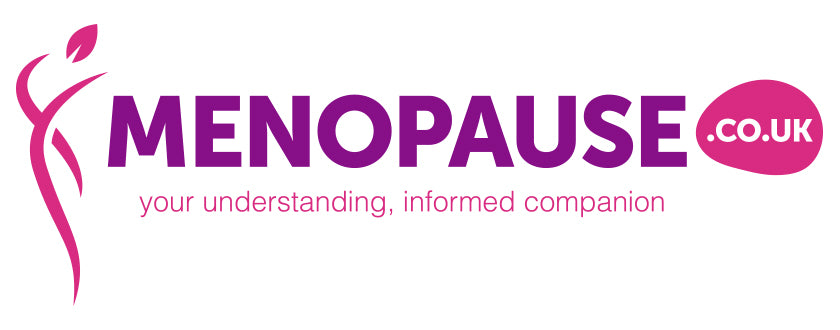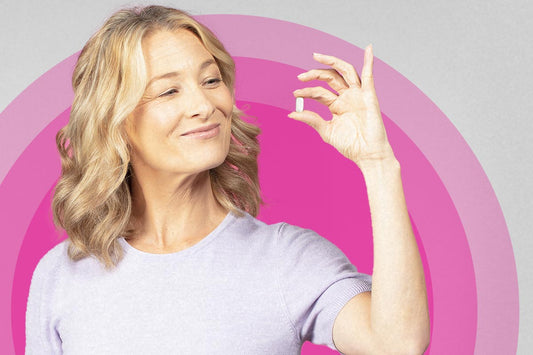Women need more menopause support from their doctors, their employers and society.
Despite most women in Britain feeling comfortable discussing the menopause with their friends and family, as the coverage and number of articles in the media about the topic has grown, research shows they are being let down by our healthcare system, employees and society in general.
We all need more education, both men and women, to encourage openness about a natural process every woman can expect to experience at some point in their life. There needs to be much better support and resources available to help women enjoy a great quality of life as they age, ensuring they can continue to be fully functioning members of society, benefitting themselves and those around them.
Women are comfortable discussing menopause with friends but lack knowledge.
According to an Ipsos study conducted in July 2022¹, covering 33 countries, Britain tops the global league as the most comfortable discussing the menopause with friends and family, with two out of three people happy to discuss the topic. This is reassuring to see and shows the impact of a recent wave of celebrities and experts weighing in on the topic, including Davina McCall who has been highly vocal and inspired much public debate back in May 2021 with her ground breaking Channel 4 documentary ‘Sex, Myths and the Menopause’ watched by millions of women. Bravo Davina!
But despite there being plenty of casual conversations amongst friends, understanding of the menopause is inadequate, with only seven in ten women (70%) agreeing they feel knowledgeable. And most men (60%) who are women’s partners, colleagues and children, as well as friends, have little understanding of the topic. The menopause remains something of a taboo – well below race, religion and politics in the ranking of potentially sensitive issues people feel comfortable talking about.
Women are being let down by our healthcare system
Typically when women are struggling with menopause related symptoms their first port of call, after discussing with friends and family or doing a bit of googling if they have the resources and motivation, would be their GP. They may also go to their GP with symptoms they haven’t connected with the perimenopause or menopause, as their knowledge is lacking, and they are unaware of what might be in store for them as their hormones change.
A Newson Health study² shows women are experiencing delays in getting a diagnosis of their perimenopause or menopause, which is having a negative effect on their lives, as well as wasting valuable NHS resources. There needs to be improved training and education of healthcare professionals so they can provide better support to women and overcome any reluctance to offer life changing HRT (Hormone Replacement Therapy) due to unfounded concerns and a poor understanding of its benefits.
Ipsos conducted research amongst healthcare professionals in November 2022, Hysterical Health,³ which found that women are felt to be taken less seriously than men when discussing their health and symptoms. So doctors themselves are more likely to think women over exaggerate symptoms, are more likely to seek help for mild symptoms and are generally more emotional about health issues compared to men. Women are not taken as seriously or listened to sufficiently by doctors.
My own menopause story illustrates the need for better support
I experienced this dismissal by healthcare professionals when I went to my GP to discuss my first ever panic attack and fear that I was having a heart attack. I now know these were caused by the perimenopause and they were completely resolved once I started on HRT.
My doctor took my blood pressure, which was normal, and so was pretty unsympathetic of my very real worries and reluctant to discuss potential remedies. I finally paid for a consultation at a private menopause clinic to receive more expert advice and have a full discussion about my health. I am privileged to have the resources and money to be able to do this but it really shouldn’t have to be this way for women, who make up half of the population and half of the patient register of GPs.
More needs to happen at work to support women experiencing symptoms
The other area where women are not getting the support they need is in the workplace. Employers have a lot more to do to meet the needs of women experiencing menopausal symptoms while at work. Around two thirds of those experiencing symptoms at work⁴ have lost interest in their work, made mistakes or doubted their ability to their job. And back in October 2020, when this Ipsos research was done, over half said their employer offered no support. This is not good enough.
I too was a women in my 50’s who thought I would need to give up work as I just couldn’t do it anymore. Despite a successful 30 year career, culminating in a senior management position in a large global organisation, I really thought I had lost the ability to think clearly and do my job.
There is a lot women can do to help themselves at work, such as setting up an informal support group which was something I started where I work. But employers also need to do more, starting with a menopause policy to cover time off and laying out what support women can expect from their employer. They also need to equip line managers with better information and clear guidance as well as consider running all staff activities that help normalise the menopause in the workplace and challenge the taboo. Women have the right for the menopause to be taken seriously, as with any other health issue, and be confident they won’t be penalised, written off as past it or made the butt of jokes.
We live in an ageist society
We have a great deal of ageism in our society in general, not only at work, but also in the media and from brands where older female positive role models are in short supply. Around half of people in Britain think employers value those aged over 50 less than those under 50 and we see a similar picture for the value advertisers, brands and the media place on older people¹. There is also a gender difference with men over 50 perceived to be more highly valued than women over 50.
Women over 50 really do not deserve to be written off, marginalised or made to feel invisible and having a positive menopause experience where they are offered appropriate support to continue to lead a fulfilling life is key to facilitating this.
At the moment there is a stark difference between men and women when it comes to wanting to live to be 100, which increasingly we will be able to do. Overall only a third (35%) of adults actually want to reach this milestone according to research conducted by Ipsos in conjunction with The Longevity Forum but this increases to 43% for men compared to only 28% of women⁵. And older women in particular are likely to be less keen as they may experience the menopause without appropriate knowledge, support and hope for a healthy future.
Invest in yourself
So what can women do to help themselves given this societal back drop?
My advice, as someone who has been through a difficult menopause and is also a Nutrition and Health Coach, is to take your education around the menopause into your own hands. This will enable you to have more informed discussions with your health care professionals, if and when relevant, and gain more knowledge about what is happening to you. Understanding more about why you are experiencing symptoms and what is driving the changes to your body can be half the battle. I really wish I had known more to help me stay calm during my perimenopausal panic attacks.
There is also a lot you can do to help mitigate what is a natural hormonal process by looking after yourself as much as you possibly can. If you are experiencing symptoms or are already post-menopausal, now is the time to double down on the lifestyle basics:
- Eat a real food, nutritious diet cutting out sugar, ultra-processed and junk food, and reducing refined carbohydrates as much as you can. Read more about eating well for the menopause in my blog watchyourwaist/good-nutrition-for-the-menopause.
- Prioritise sleep – hormonal changes can make sleep tricky, but following good sleep hygiene and getting out in the daylight first thing in the morning should be considered essential.
- Move about! You don’t need to be a lycra clad gym bunny but daily movement, even simple activity such as a 30 minute walk, is invaluable.
- Reduce chronic stress and nurture those relationships that bring you joy and make you feel connected to others. There has never been a better time to focus on what makes you happy and nurtures your soul.
Do get in touch with me if you want to discuss where you are in your menopause journey and potential changes you could consider making to what you eat, how you eat and your lifestyle, to maintain a healthy weight and look after your future health.
I would also encourage everyone to keep the menopause dialogue going, bringing the topic out in the open and pushing for change within our healthcare system, at work and society in general. It is a natural biological process that we now live long enough to experience and should really be embraced. Mid-life and older women have so much wisdom and life experience to give.
References
- ipsos.com/en-uk/britons-more-comfortable-talking-about-menopause-any-other-country-many-lack-knowledge-subject
- nhmenopausesociety.org/research/delayed-diagnosis-and-treatment-of-menopause-is-wasting-nhs-appointments-and-resources/
- ipsos.com/en-uk/hysterical-health-unpicking-cultural-beliefs-that-shape-womens-healthcare
- ipsos.com/en-uk/world-menopause-day-2020
- ipsos.com/en-uk/one-seven-britons-expect-live-be-100-years-old-down-third-2019




